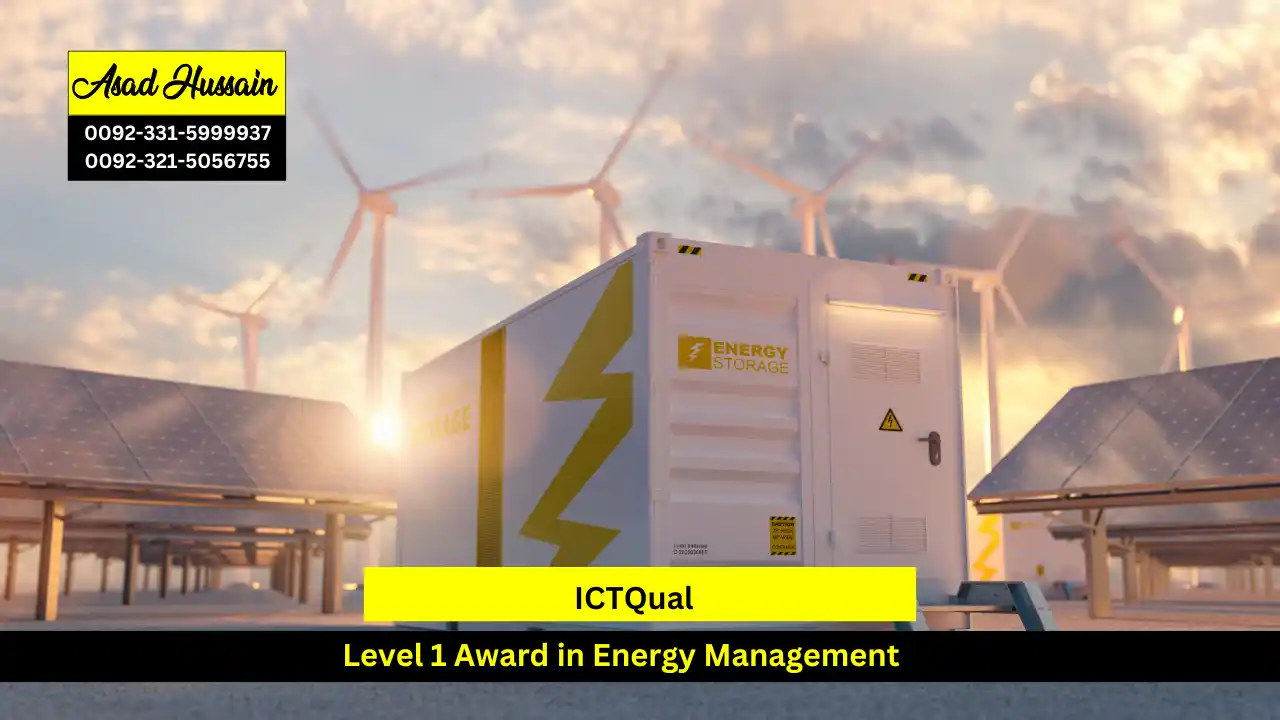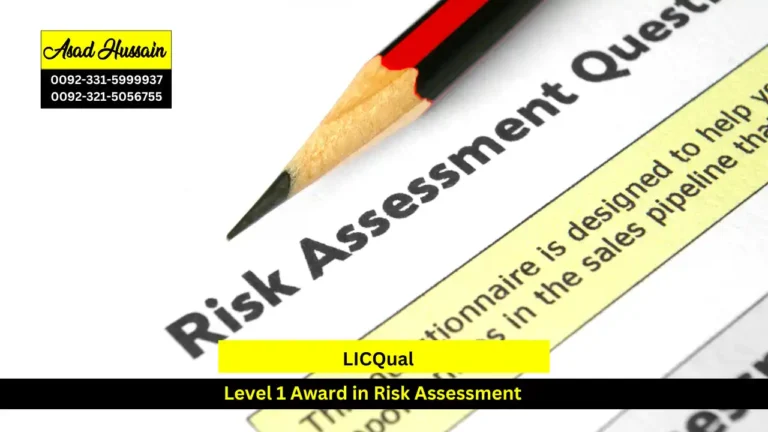As the world pivots towards sustainability and efficiency, the demand for skilled energy managers has never been higher. The Level 1 Award in Energy Management is the perfect starting point for anyone looking to enter this vital and growing field. This blog post will explore the significance of energy management, the key components of the Level 1 Award, and the potential career pathways it opens up.
Energy management is the strategic evaluation, monitoring, and control of energy usage within an organization or system. It aims to optimize energy consumption, reduce costs, and minimize environmental impact. Effective energy management involves a combination of technical knowledge, strategic planning, and behavioral change
The Level 1 Award in Energy Management is an excellent starting point for anyone looking to embark on a career in the energy sector. With its comprehensive curriculum and focus on sustainability, this qualification equips learners with the essential knowledge and skills needed to make a positive impact on energy consumption and environmental conservation. Whether you are looking to start a new career or enhance your current role, the Level 1 Award in Energy Management offers valuable insights and opportunities in a field that is crucial for our future.
Program Highlights
Mandatory Units
- Fundamentals of energy management
- Energy consumption awareness in the workplace
- Reducing energy consumption in the workplace
- Importance of collecting and managing energy data
- Importance of energy audits and assessments in the workplace
- Legislative and regulatory requirements covering energy
- Importance of an organisation’s energy strategy, planning and policy
- Participants may be required to have a minimum educational qualification, such as a high school diploma or equivalent.
- Proficiency in the language of instruction (usually English) may be required to ensure participants can fully understand course materials and actively participate in discussions and assessments.
- Basic computer literacy, including the ability to use word processing software, email, and internet browsers, may be necessary for accessing course materials and completing online assessments, if applicable.
- Work experience is not mandatory, but it is preferred or recommended for participants to have relevant work experience in fields such as engineering, environmental science, facilities management, or energy-related industries.
Fundamentals of Energy Management
- Understand the basic principles of energy management.
- Describe the role and responsibilities of an energy manager.
- Identify the key components and objectives of an energy management system.
- Explain the benefits of effective energy management for organizations and the environment.
Energy Consumption Awareness in the Workplace
- Recognize common energy consumption patterns in a workplace setting.
- Identify the major sources of energy use in different types of workplaces.
- Understand the impact of energy consumption on operational costs and environmental footprint.
- Develop strategies to raise awareness about energy consumption among employees.
Reducing Energy Consumption in the Workplace
- Identify practical measures to reduce energy consumption in the workplace.
- Evaluate the effectiveness of various energy-saving techniques and technologies.
- Implement behavior change strategies to promote energy efficiency among staff.
- Develop and monitor action plans for reducing energy consumption.
Importance of Collecting and Managing Energy Data
- Understand the significance of accurate energy data collection.
- Identify different methods and tools for monitoring and measuring energy usage.
- Analyze energy data to identify trends, inefficiencies, and opportunities for improvement.
- Develop a systematic approach to managing and reporting energy data.
Importance of Energy Audits and Assessments in the Workplace
- Explain the purpose and benefits of conducting energy audits.
- Identify the steps involved in performing an energy audit.
- Understand the different types of energy assessments and their applications.
- Develop action plans based on audit findings to enhance energy performance.
Legislative and Regulatory Requirements Covering Energy
- Understand the key legislative and regulatory frameworks governing energy management.
- Identify relevant laws, standards, and codes of practice related to energy use and efficiency.
- Explain the implications of non-compliance with energy regulations for organizations.
- Develop strategies to ensure compliance with energy-related legislation.
Importance of an Organization’s Energy Strategy, Planning, and Policy
- Understand the role of an energy strategy in achieving organizational goals.
- Develop an energy policy that reflects the organization’s commitment to energy management.
- Identify the key components of an effective energy plan.
- Implement and monitor an organization-wide energy strategy to drive continuous improvement.
The Level 1 Award in Energy Management is designed for individuals who are new to the field of energy management and are seeking to build a foundational understanding of the subject. It is ideal for entry-level professionals, recent graduates, and those looking to transition into the energy sector. Additionally, this course is suitable for employees in various roles across industries who wish to gain insights into energy efficiency practices and contribute to their organization’s sustainability goals. Facilities managers, sustainability coordinators, and anyone with a keen interest in energy conservation and management will find this course particularly beneficial as it provides the essential knowledge and skills needed to make informed decisions about energy use in the workplace.







